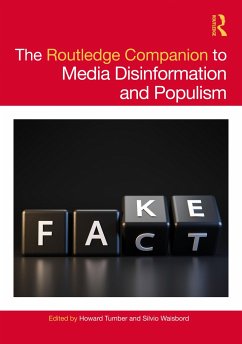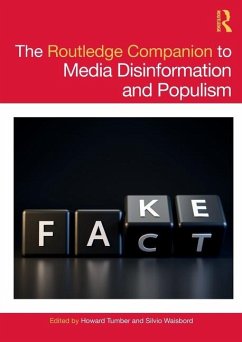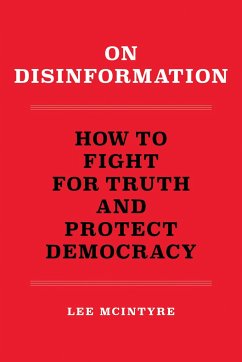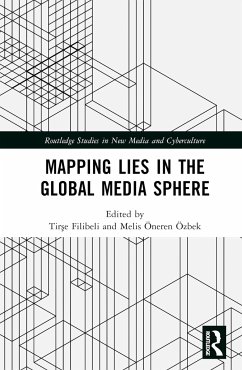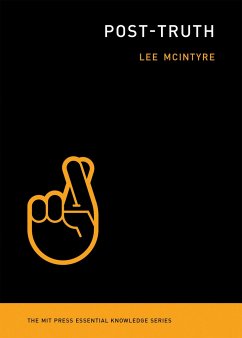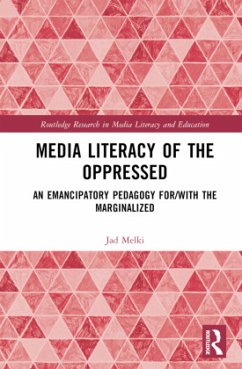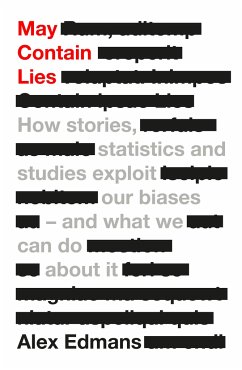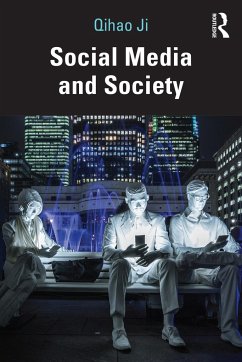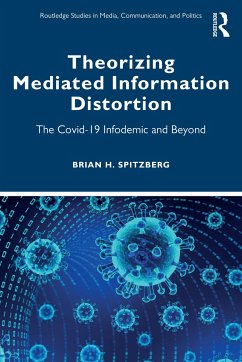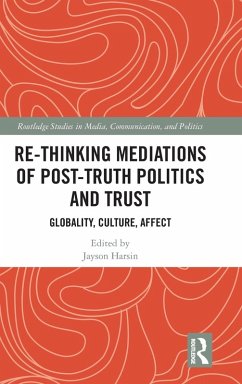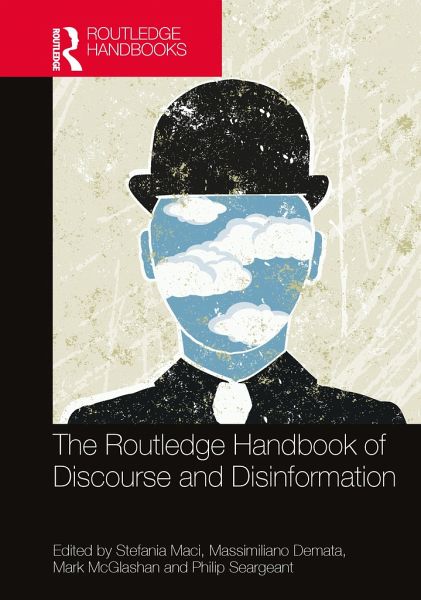
The Routledge Handbook of Discourse and Disinformation
Versandkostenfrei!
Versandfertig in 6-10 Tagen
245,99 €
inkl. MwSt.
Weitere Ausgaben:

PAYBACK Punkte
123 °P sammeln!
This handbook offers a comprehensive overview of research into discourses of disinformation, misinformation, post-truth, alternative facts, hate speech, conspiracy theories, and "fake news".Divided into two sections, it provides a detailed look at the methodological challenges and approaches for studying disinformation, along with a wide range of case studies covering everything from climate change denial to COVID-19 conspiracies. The studies address how discourses of disinformation are constructed and developed, what rhetorical and persuasive strategies they employ, how disinformation can be ...
This handbook offers a comprehensive overview of research into discourses of disinformation, misinformation, post-truth, alternative facts, hate speech, conspiracy theories, and "fake news".
Divided into two sections, it provides a detailed look at the methodological challenges and approaches for studying disinformation, along with a wide range of case studies covering everything from climate change denial to COVID-19 conspiracies. The studies address how discourses of disinformation are constructed and developed, what rhetorical and persuasive strategies they employ, how disinformation can be discerned from real news, and what steps we might take in order to create a more trustworthy news environment.
Authored by leading experts from around the world, and showcasing the most up-to-date methodological approaches to the topic, the volume makes a significant contribution to current linguistic research on politics, and is an essential guide to thediscourses of disinformation for advanced students and researchers of English language studies, linguistics, and media and communication studies.
Divided into two sections, it provides a detailed look at the methodological challenges and approaches for studying disinformation, along with a wide range of case studies covering everything from climate change denial to COVID-19 conspiracies. The studies address how discourses of disinformation are constructed and developed, what rhetorical and persuasive strategies they employ, how disinformation can be discerned from real news, and what steps we might take in order to create a more trustworthy news environment.
Authored by leading experts from around the world, and showcasing the most up-to-date methodological approaches to the topic, the volume makes a significant contribution to current linguistic research on politics, and is an essential guide to thediscourses of disinformation for advanced students and researchers of English language studies, linguistics, and media and communication studies.





